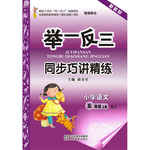题目内容
It may be necessary to stop______in the learning process and go back to the difficult points in the lessons.
A. at intervals B. at random
C. at ease D. at length
练习册系列答案
 举一反三同步巧讲精练系列答案
举一反三同步巧讲精练系列答案 口算与应用题卡系列答案
口算与应用题卡系列答案 名师点睛字词句段篇系列答案
名师点睛字词句段篇系列答案
相关题目
题目内容
It may be necessary to stop______in the learning process and go back to the difficult points in the lessons.
A. at intervals B. at random
C. at ease D. at length
 举一反三同步巧讲精练系列答案
举一反三同步巧讲精练系列答案 口算与应用题卡系列答案
口算与应用题卡系列答案 名师点睛字词句段篇系列答案
名师点睛字词句段篇系列答案